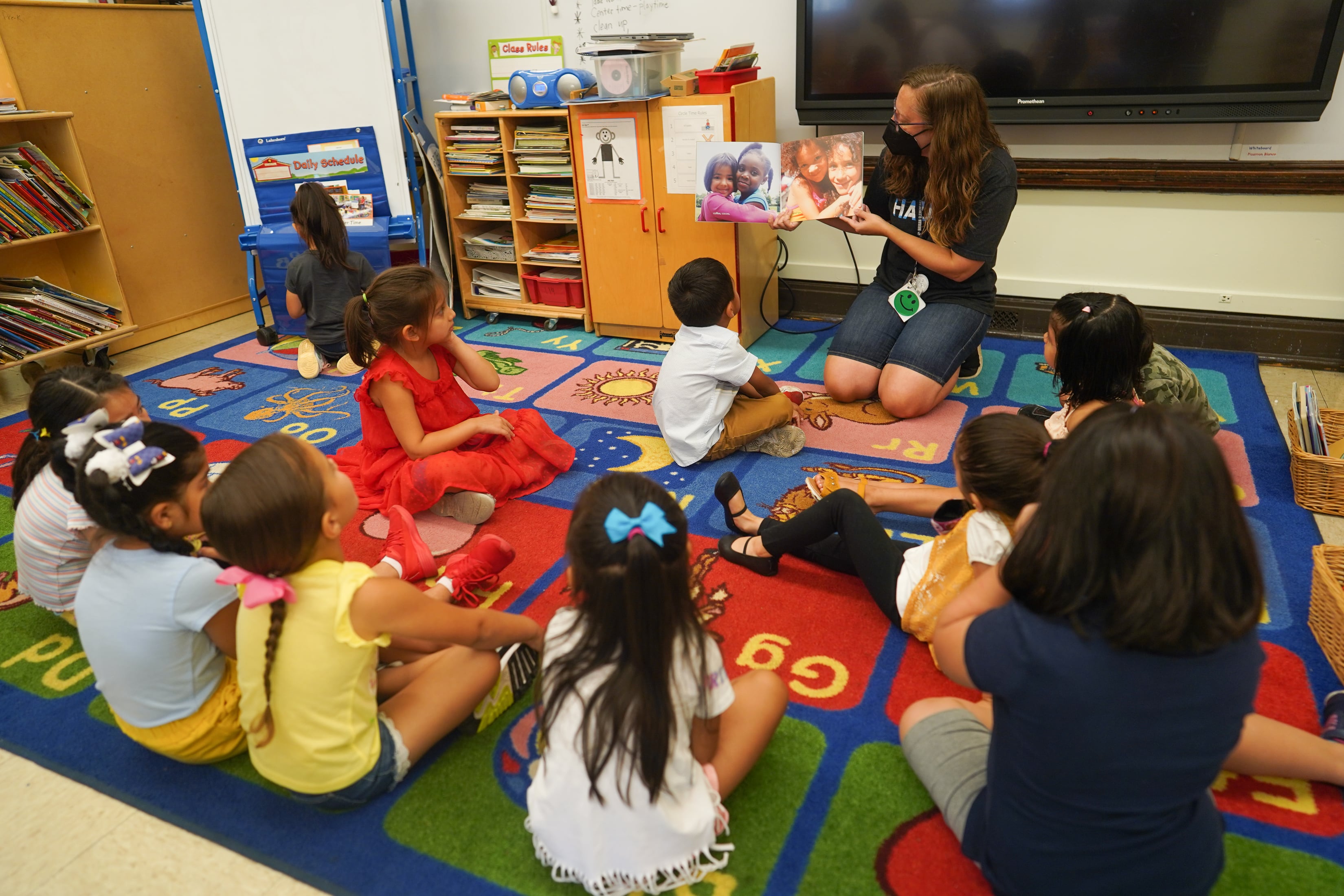Chicago freshmen at some high-poverty high schools will earn money to attend a summer orientation program — part of a broader district push to boost summer school participation amid the pandemic.
The district saw lackluster enrollment in its summer orientation and academic catchup programs in 2022, even as school-based enrichment programs drew record numbers of students. In an update to the school board Wednesday, district officials said they will offer the paid version of the freshman orientation, called Earn and Learn, at more than 30 high schools in a partnership with the nonprofit After School Matters. Students will get free transportation and a stipend for completing the program.
Board member Elizabeth Todd-Breland applauded the move, saying it can entice students who otherwise might choose to work through the summer.
“We know our young people want to make money for themselves and to be able to be involved in our programming,” she said.
The district did not immediately respond when asked how much the stipend will be.
Some board members said they want to see more central office support for schools trying to get the word out about programs as the district is poised to continue a major summer school expansion this year.
“We can always do better,” board president Miguel del Valle said. “We should be aggressive to maximize the level of participation in all our programs during the summer.”
Teachers union and other officials also voiced concern about a more than two-week gap between school and summer offerings. Chicago Public Schools’ last day is June 7 and the start of both school district and Chicago Park district programming June 26. With just two weeks left before summer break, the district is working on offering some enrichment and other activities during that stretch with philanthropy dollars, officials said.
City leaders have previously held up summer enrichment programs and job opportunities for youth as key in warding off a rise in gun violence during the summer months.
Like other districts, Chicago has boosted the dollars and energy it pours into summer programs, seen as a key strategy to recover from the pandemic’s academic and social-emotional damage. In 2022, the district spent an unprecedented $40 million on summer programming, 50% more than the previous summer.
District data showed about 73,000 students, or a fifth of the district’s overall enrollment, signed up, many for multiple programs. That included a record 42,500 students enrolled in enrichment, or Out of School Time, programs designed at the school level, sometimes in partnership with local nonprofits.
But Chalkbeat’s reporting has also found that the district has struggled to track enrollment and attendance in summer programs. It relies on three separate systems for reporting enrollment numbers with sometimes overlapping data, and doesn’t have a good way of capturing actual attendance — making it harder to gauge if these investments have paid off.
District officials told Chalkbeat earlier this year they are stepping up efforts to track summer participation.
Meanwhile, some summer programs — such as ones that help students catch up academically or make the transition to kindergarten and high school — have been plagued by low enrollment. District officials said Wednesday that the district will offer such transition programs — Preview to Pre-K, Kickoff to Kindergarten, and Freshman Connection — at more schools this summer.
Referring to under-enrollment in some programs last summer, Todd-Breland asked officials how they are ensuring schools are filling those summer seats. Ali Muhammad, deputy chief of the office of college and career success, said campuses are largely handling outreach to families, with his office playing backup.
“We are really relying on the schools to make sure students know about these programs,” he said. The district will have a central hotline for summer school inquiries during the weeks after school ends but before summer school begins.
In previous years, the district faced some criticism from families who say they get information on summer programs too late in the spring, with some half-day options that can be a tough fit for working parents.
Jackson Potter, vice president of the Chicago Teachers Union, voiced concern at the board meeting about the weeks-long gap between the end of the school year and the start of summer programming.
With money raised through philanthropy, he said the district and union are working on offering some programs during that stretch.
He noted that such opportunities might be especially important as the district continues to welcome dozens of newly arrived migrant students. Potter suggested that schools such as Zapata Academy, an elementary on the Southwest Side, that have seen new arrivals in recent days could remain open during those two weeks to offer enrichment and other activities as students adjust to their new district.
Del Valle, the board president, also encouraged the district to ensure there are more summer job options for students, about 20,000 of whom landed positions through a city program called One Summer Chicago in 2022.
“There are ‘Help Wanted’ signs everywhere,” he said. “I just want to make sure we are stepping up our efforts to identify those job opportunities.”
Programs run from June 26 through Aug. 4. Families can review all summer opportunities at www.cps.edu/summerprograms.
Mila Koumpilova is Chalkbeat Chicago’s senior reporter covering Chicago Public Schools. Contact Mila at mkoumpilova@chalkbeat.org.







